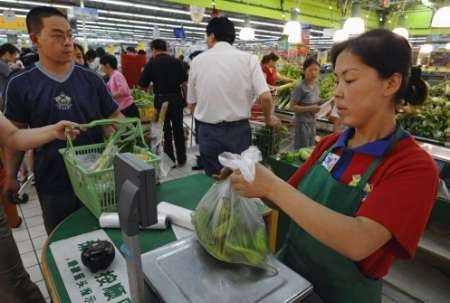All signs point to higher inflation in China

Domestic monetary policy, monetary policy abroad, wages, and the rising cost of essential commodities all point to higher inflation in China.
Xinhua, China's state media, reported that a leading government think-tank said inflation is expected to be at 3.2 percent in 2010. For the month of October, inflation rose 4.4 percent year-over-year and food inflation spiked 10.1 to percent.
While these figures are already high, WikiLeaks recently confirmed the long-held Western assumption that Chinese data may not be accurate, so they may still be understated.
Monetary Policy
China's monetary policy eased significantly in late 2008. The government maintained it throughout 2009 and only began tightening in 2010. Meanwhile, U.S. monetary policy, which is transmitted throughout the world, remains ultra-loose and shows no sign of normalizing.
Increase in the supply of money logically drives up the price of consumer goods, at least according to Austrian economists. Economists, Austrians included, agree there is a lag between monetary inflation and consumer inflation, so the catching up of consumer inflation could be exactly what's happening in China right now.
Wages
Some think consumer inflation depends almost entirely on wages. In China, wages are rising. A robust economy and loose monetary policy are two factors behind higher wages.
In addition, there is a nascent trend of Chinese workers banding together and collectively demanding higher wages. This happened recently at Foxconn, for example.
More importantly, the surplus of labor in China, which used to keep wages down, is disappearing, according to Qing Wang, Morgan Stanley's chief economist for greater China.
In fact, during the holiday seasons, there are already reports of labor shortages in coastal areas.
Commodities
Food accounts for about one-third of consumer spending in China, according to the government's consumer price index calculation.
Soaring international food prices, therefore, will put significant pressure on Chinese consumers.
Also, as a manufacturing-heavy developing country, China consumes huge amounts of energy and raw materials. This energy and commodity inflation will at least be partially passed onto Chinese consumers.
Email Hao Li at hao.li@ibtimes.com
© Copyright IBTimes 2025. All rights reserved.





















